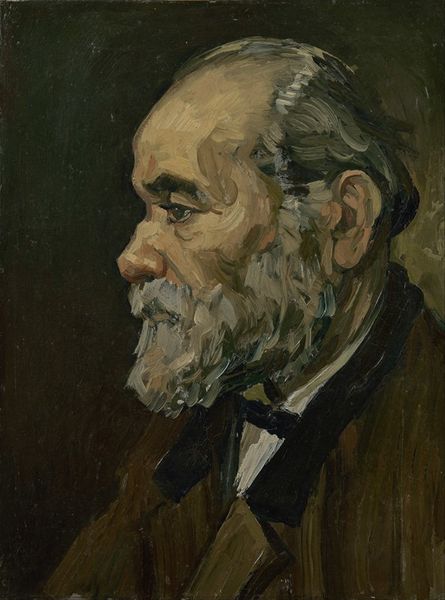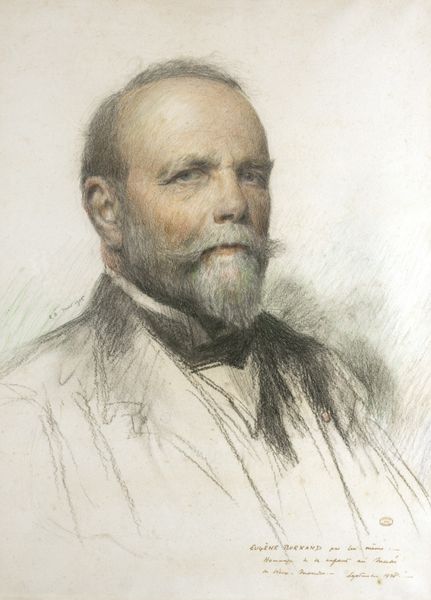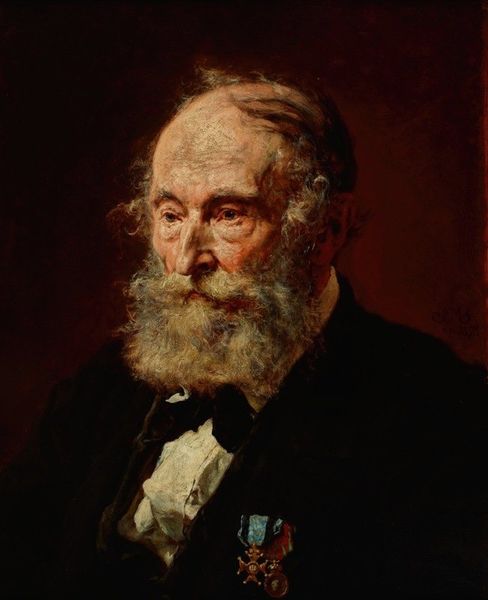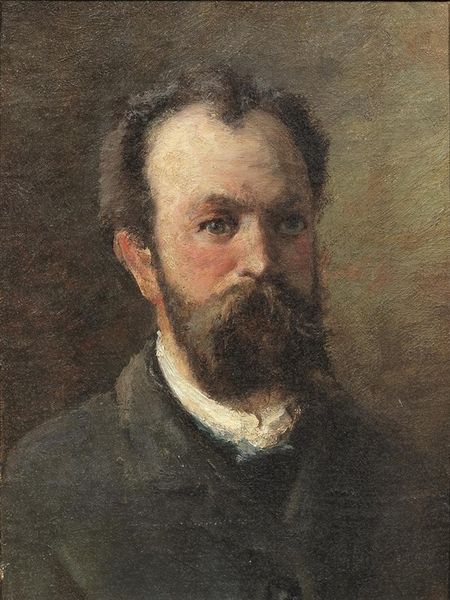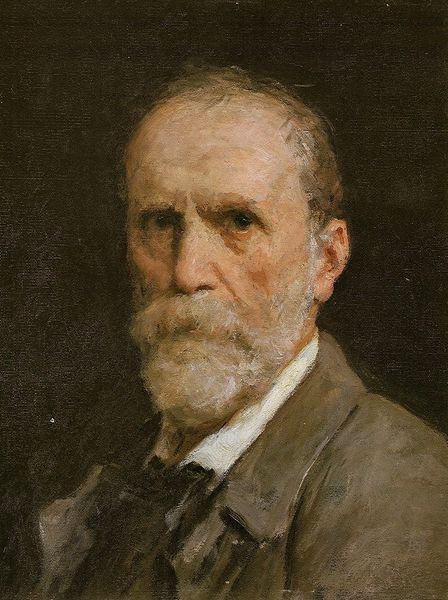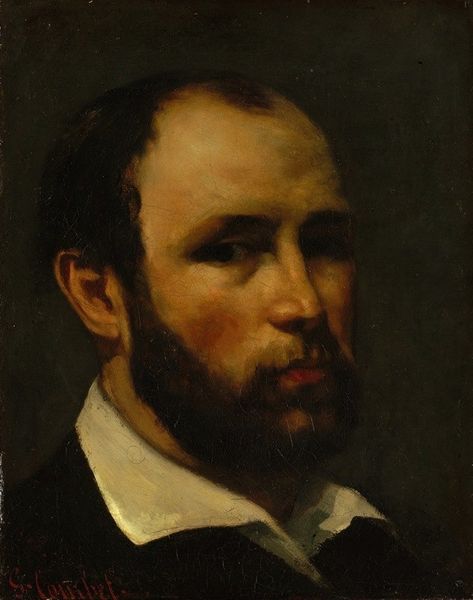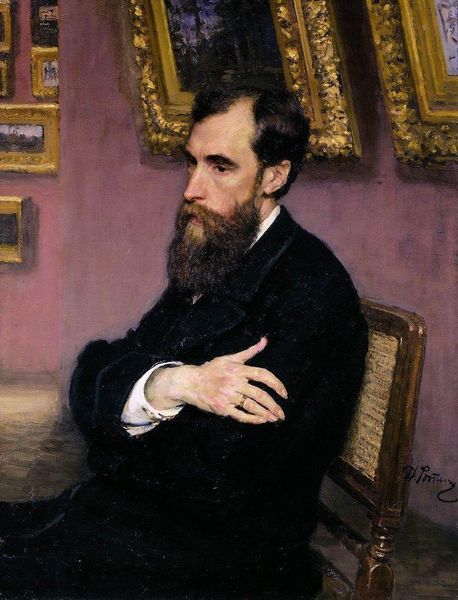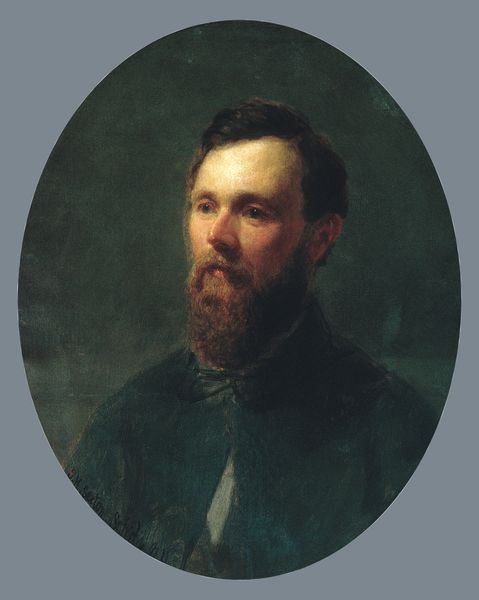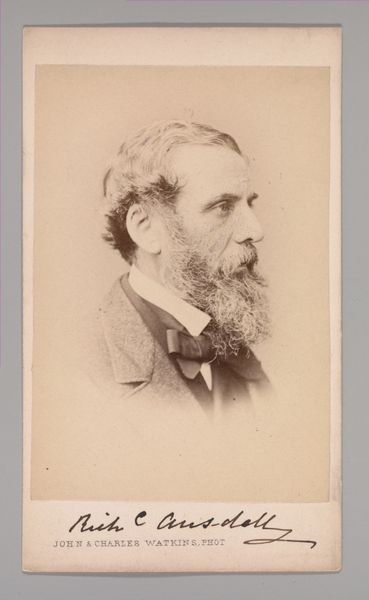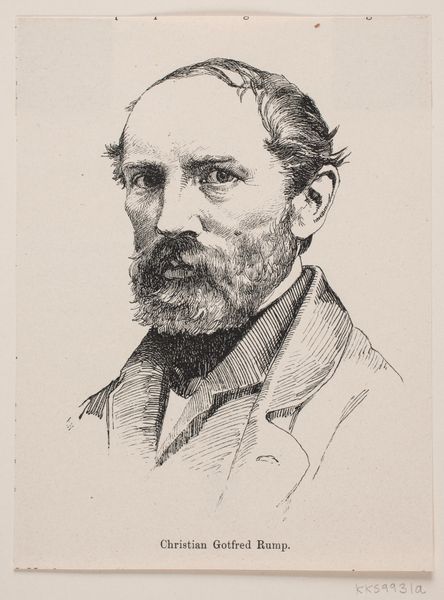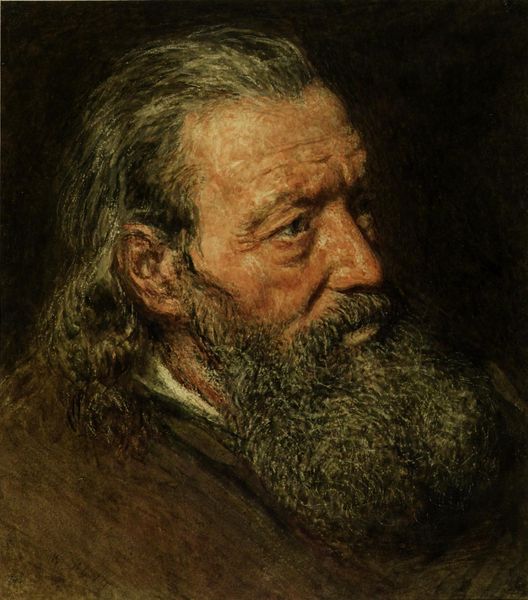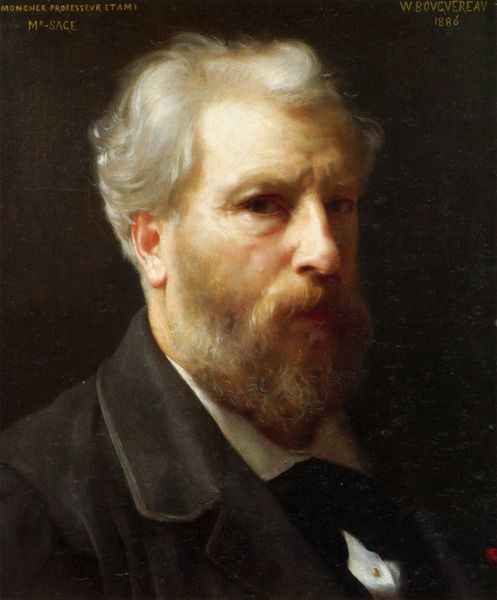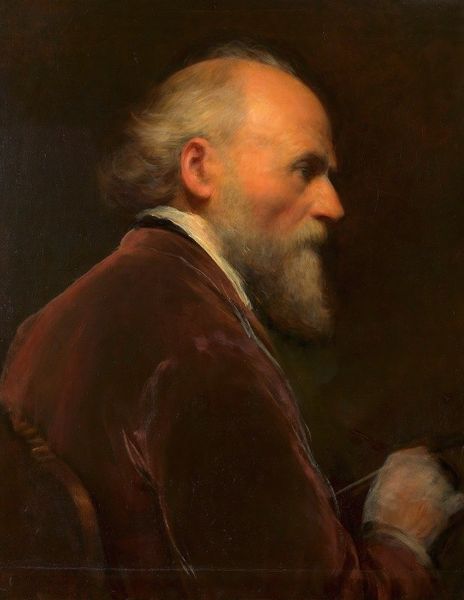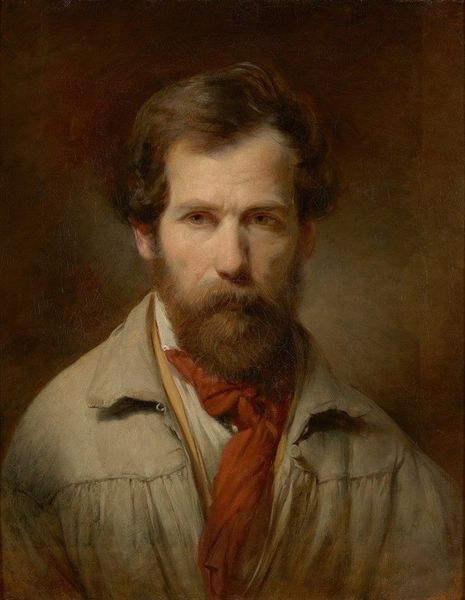
painting, watercolor
#
portrait
#
self-portrait
#
painting
#
charcoal drawing
#
oil painting
#
watercolor
#
portrait drawing
#
academic-art
#
portrait art
#
realism
Copyright: Public domain
Editor: This is Albrecht Anker’s "Self-portrait in profile, left," painted in 1891. It’s watercolor, and there's something very immediate about the way the artist captured himself. It feels less posed and more…observational. What do you see in this piece? Curator: I see a study in time, in the weight of experience etched onto the human face. The profile view, so often used in classical portraiture to convey nobility, here feels more intimate, vulnerable even. Think about what the profile conceals - half the face, half the story initially. What memories, what cultural inheritance, does that shadow hold, do you think? Editor: It does feel very different from those heroic portraits of the past! There's a humility. I guess hiding half of the face invites us to focus on the visible half and imagine the rest, filling in the gaps ourselves. Curator: Exactly. The beard, the suit and tie - markers of bourgeois identity – are rendered in soft, almost dissolving washes of color. Consider how watercolor as a medium often evokes fleeting moments, impressions. Does this choice reflect on Anker's own perception of self, perhaps his mortality, the impermanence of identity? Editor: I hadn't thought of that. The fragility of watercolor contrasting with the established identity suggested by his clothing... Curator: Yes! He seems to be engaging with artistic conventions while subtly undermining them. He's both there and not quite there. What remains with you when you turn away from the work? Editor: I think it’s that sense of quiet observation and the tension between revealing and concealing, creating a much richer understanding of a person than a straightforward depiction could.
Comments
No comments
Be the first to comment and join the conversation on the ultimate creative platform.
